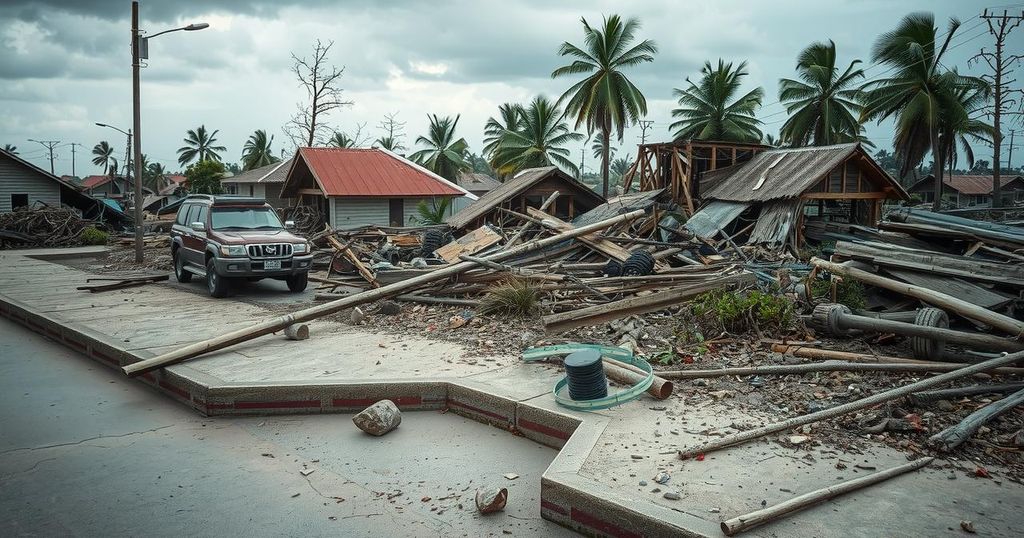Cyclone Chido has severely impacted northern Mozambique, destroying 35,000 homes and affecting over 90,000 children. The cyclone’s destruction includes damaged schools and health facilities, worsening an already dire humanitarian situation in the region. UNICEF is calling for urgent support to address the needs of those affected, particularly in light of increasing food insecurity and health risks.
Cyclone Chido has inflicted severe devastation on Cabo Delgado province in northern Mozambique, affecting over 90,000 children and destroying more than 35,000 homes as it made landfall on December 17, 2024. The cyclone wreaked havoc on the local infrastructure, with at least 186 classrooms and 20 health facilities damaged. In light of the region’s ongoing struggles with conflict and humanitarian crises, UNICEF emphasized the urgent need for response efforts to mitigate these challenges, particularly the risk of waterborne diseases exacerbated by the storm’s aftermath.
Mozambique has faced significant challenges due to its vulnerability to climate change, with Cyclone Chido compounding existing crises such as conflict, drought, and disease outbreaks. The country has been severely impacted by the repercussions of climate-related disasters, making it one of the most affected nations globally. As of now, nearly 4.8 million individuals in Mozambique require humanitarian aid, illustrating the ongoing need for support in these communities already plagued by instability and food insecurity.
In summary, Cyclone Chido has not only devastated the physical landscape of northern Mozambique but has also exacerbated existing humanitarian crises, particularly affecting children and vulnerable populations. The urgent call for humanitarian assistance is pivotal in alleviating the impacts of this disaster, as the region grapples with the compounded effects of climate change and socio-economic instability.
Original Source: reliefweb.int







